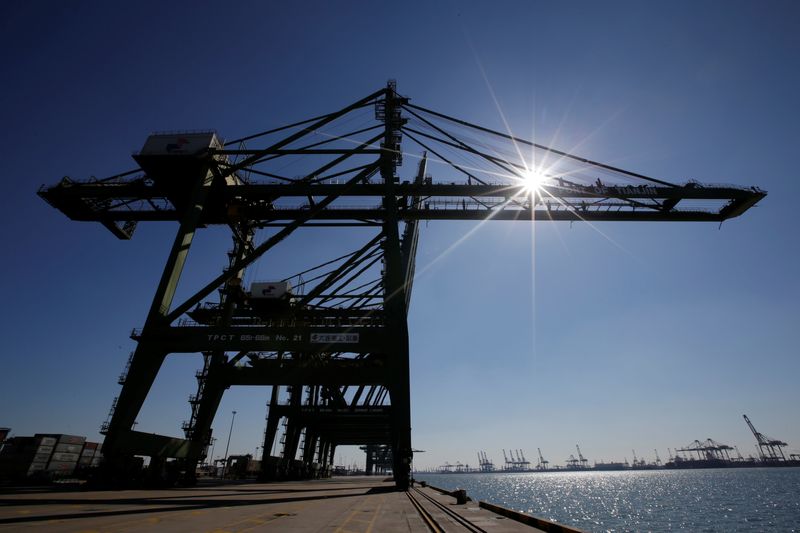BEIJING (Reuters) -China passed a law on Friday strengthening its trade defence capabilities as the United States and the European Union take aim at Beijing over excess industrial capacity.
The Tariff Law, approved by China's top legislature after three rounds of deliberations going back to 2022, signals to China's biggest trade partners its ability to hit back should they impose tariffs on exports of the world's No.2 economy.
It is the latest addition to Beijing's arsenal of trade defence instruments as it maintains an uneasy truce with Washington following a trade war that began while Donald Trump was U.S. president.
The law, which will take effect from Dec. 1, outlines a range of legal provisions related to tariffs on Chinese imports and exports, from what constitutes tax incentives to China's right to hit back at countries that renege on trade agreements.
It was approved on the same day as U.S. Secretary of State Antony Blinken visited China for talks which produced little progress on contentious issues including U.S. complaints about cheap Chinese exports.
Beijing has stepped up its trade defence capabilities since President Xi Jinping came to power in 2012, ushering in laws empowering officials with ways of retaliating against countries that take issue with the way China trades by interfering with the movement of goods, data and personnel between those markets.
Rising tensions between Beijing, Washington and Brussels have validated Beijing's belief that it needs to consolidate and improve the measures it has at its disposal, analysts say.
"It's like a nuclear weapon: the point of having it is not to use it, but to deter others from using the same against you," said Henry Gao, professor at Singapore Management University.
"You could argue that this is not really necessary, as when China upgraded its Foreign Trade Law in 2004, there were measures on applying retaliatory tariffs," Gao added.
"But I think one point China is trying to make by including this in the new Tariff Law is that this is our prerogative: If you're going to hit us with tariffs, we can do the same."
'PRINCIPLE OF RECIPROCITY'
Article 17 of the new law sets out how China can adopt the "principle of reciprocity" against markets it has signed a preferential trade deal with, and allows Chinese officials to apply equivalent tariffs on goods of countries that renege on their agreement.
"This is the first time of such (a) principle being written into the law," said Lin Qian, senior partner at Beijing DHH Law Firm. But he said the new law was unlikely to have a big impact on China's exports and imports as most articles from the previous customs regulations will still be in effect.
Growing alarm over Chinese industrial overcapacity flooding the EU with cheap products is opening a new front in the West's trade war with Beijing, which started with Washington's import tariffs in 2018.
Brussels is investigating whether to apply tariffs on Chinese electric vehicles, while Beijing is conducting its own anti-dumping probe into EU brandy.
